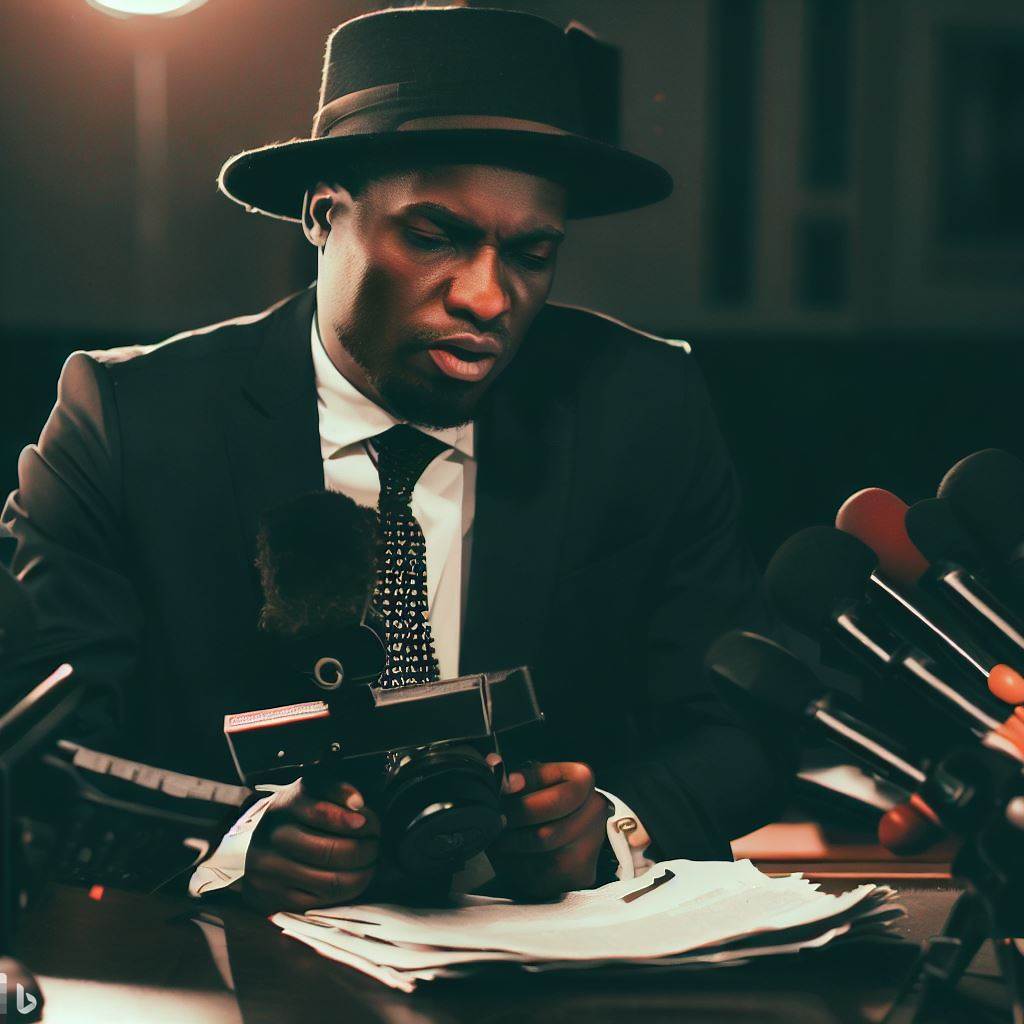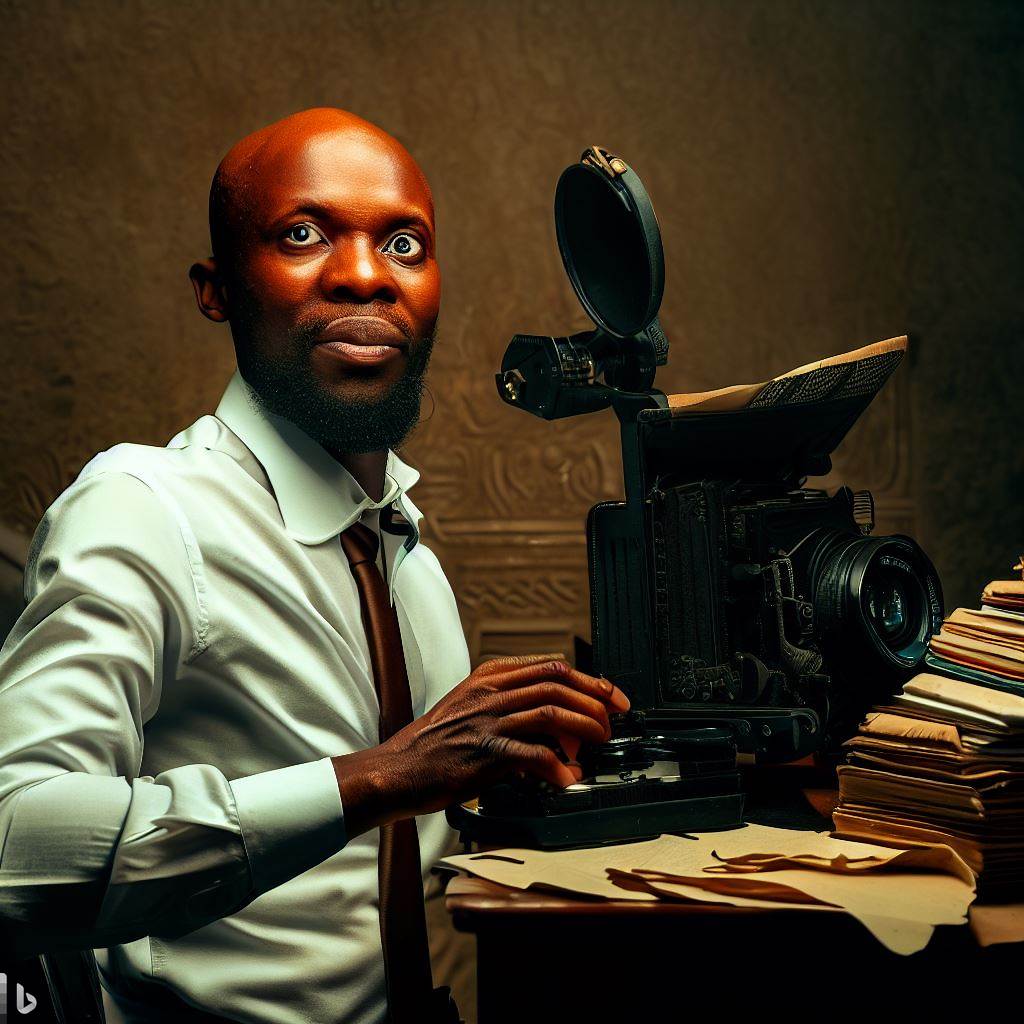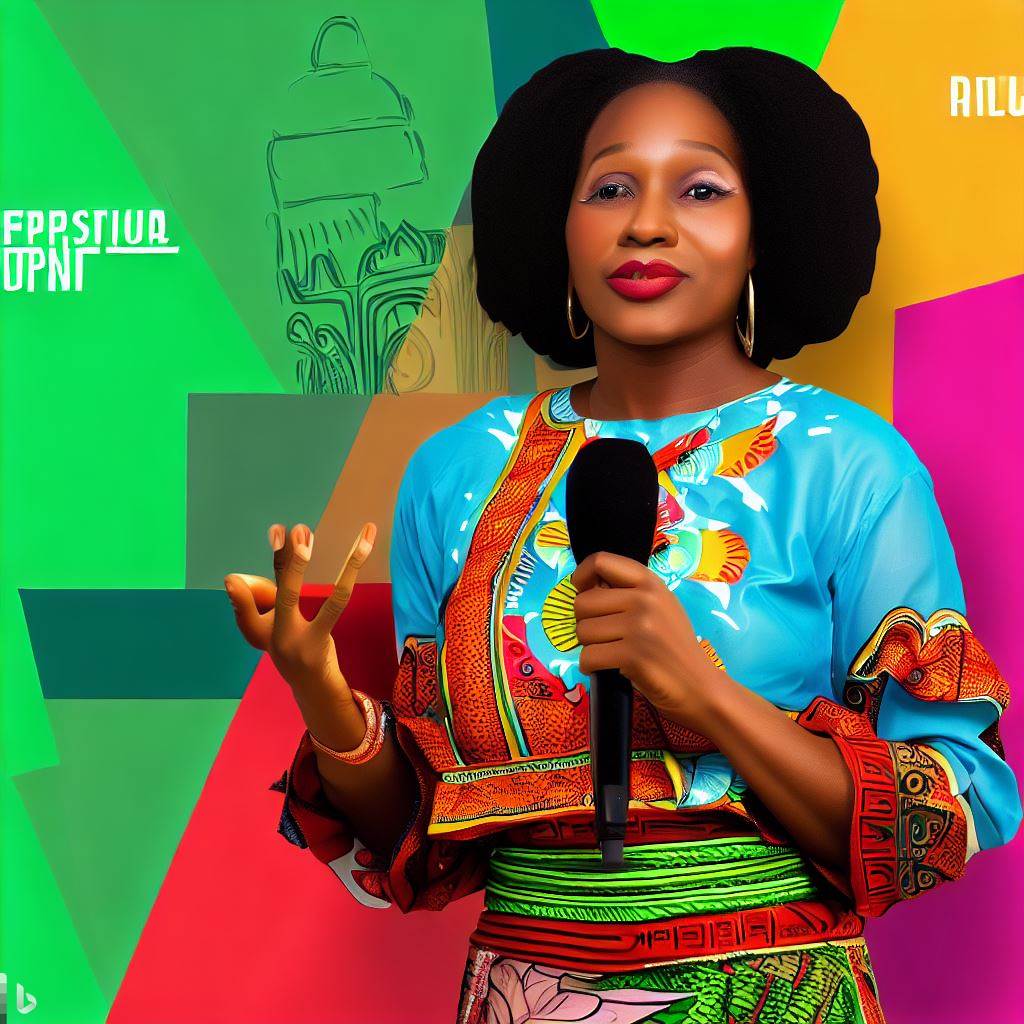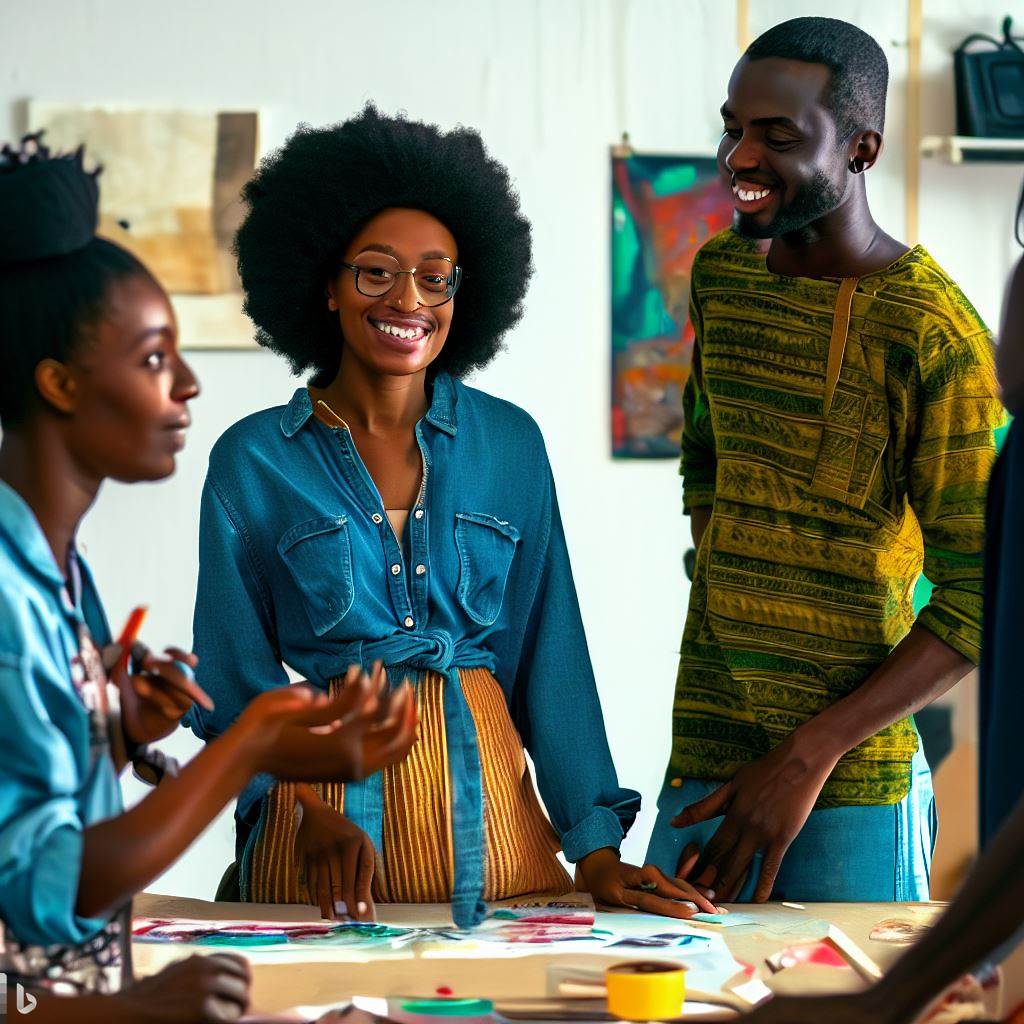Introduction
In Nigeria, cultural influence plays a significant role in shaping makeup artistry. Understanding this topic is crucial to comprehend the impact of culture on beauty standards and artistic expressions in the country.
Cultural influences in Nigeria’s makeup industry reflect the rich diversity and traditions that define the nation.
Exploring this topic provides insights into the evolution of beauty practices and the ways in which Nigerians embrace their cultural heritage through makeup artistry.
By delving into the cultural influence on makeup artistry in Nigeria, we gain a deeper appreciation for the dynamic and multifaceted nature of the beauty industry in the country.
Historical Background
Overview of the history of makeup in Nigeria
Makeup has a long history in Nigeria, dating back to ancient times. In traditional Nigerian cultures, makeup was used for various purposes, including beauty enhancement and religious rituals.
Each Nigerian culture had its own unique beauty practices and makeup techniques. In the Hausa culture, for example, henna was used to decorate the hands and feet.
The Yoruba culture had a tradition of using adire dye to create intricate patterns on the skin. In the Igbo culture, a type of clay called uli was used to paint decorative designs on the face and body.
Makeup in Nigeria has always been influenced by cultural beliefs and traditions. Traditional Nigerian makeup emphasized natural beauty and enhancing one’s features.
With the colonization of Nigeria by the British, Western makeup practices began to influence Nigerian beauty trends.
During the colonial era, Nigerian women started to adopt Western makeup products such as foundation and lipstick.
The introduction of cinema in Nigeria in the 1920s also played a significant role in shaping makeup trends. Nigerian actresses in the early film industry often wore heavy makeup on screen, influencing beauty ideals.
The 1960s and 1970s saw a rise in the popularity of Nigerian music and fashion, which also impacted makeup trends. Nigerian musicians and fashion icons became influential figures, defining beauty standards.
Traditional beauty practices and makeup techniques in different Nigerian cultures
Traditional Nigerian makeup techniques started to blend with Western styles, creating unique looks.
Today, Nigerian makeup artists combine traditional and modern techniques to create diverse and innovative makeup looks.
The Nigerian makeup industry has experienced significant growth in recent years, with an increase in professional makeup artists.
Social media has played a crucial role in showcasing Nigerian makeup artists’ talent and creativity.
Nigerian makeup artists often incorporate cultural elements into their work, celebrating the diversity of Nigerian cultures.
From gele headwraps to tribal markings, Nigerian makeup artists use these cultural symbols to create stunning looks.
Through their artistry, Nigerian makeup artists are preserving and promoting Nigerian culture. The cultural influence on makeup artistry in Nigeria is evident in fashion shows, weddings, and special occasions.
Nigerian women use makeup to express their identity and celebrate their cultural heritage. The influence of Nigerian makeup is not limited to Nigeria, with Nigerian beauty trends gaining recognition internationally.
Nigerian makeup artists have become sought-after globally, contributing to the growth and evolution of makeup artistry.
In the end, the historical background of makeup in Nigeria reflects a rich cultural heritage that continues to shape makeup trends today.
Read: Training and Qualification for Makeup Artists in Nigeria
Cultural Influences on Makeup Artistry
Makeup artistry in Nigeria is greatly influenced by the diverse cultures present in the country.
Each Nigerian culture brings its own unique style and techniques to makeup application, resulting in a vibrant and rich makeup artistry scene.
How different Nigerian cultures influence makeup artistry
Nigeria is home to over 250 ethnic groups, each with its own cultural practices and traditions. These cultural influences are reflected in the makeup artistry of the different regions.
In the northern regions of Nigeria, Islamic practices and traditions heavily influence makeup artistry.
Women from these regions usually opt for more modest and minimalistic makeup looks, focusing on enhancing their natural beauty.
In contrast, the southern regions of Nigeria, with its diverse mix of ethnic groups such as the Yoruba, Igbo, and Edo, embrace bold and vibrant colors in makeup inspired by their traditional attires.
These colorful makeup looks are often characterized by eye-catching hues and intricate designs.
The use of bold and vibrant colors in makeup inspired by Nigerian traditional attires
Nigerian traditional attires are known for their bright and dynamic colors, and this influence can be seen in makeup artistry as well.
Makeup artists often incorporate these bold and vibrant colors into their creations, using them to accentuate the eyes, lips, and cheeks.
For instance, the use of rich red pigments in eye shadows and lipsticks is common, inspired by the vibrant red hues found in traditional Nigerian fabrics.
Similarly, shades of orange, yellow, and gold are used to create eye-catching looks that pay homage to the colorful patterns and designs found in traditional attires.
The significance of tribal marks and facial scarification as part of makeup artistry in some Nigerian cultures
In some Nigerian cultures, tribal marks and facial scarification play a significant role in makeup artistry. These marks and scars are seen as symbols of beauty, identity, and heritage.
Makeup artists often incorporate these markings into their creations, utilizing special techniques to mimic the appearance of tribal marks and scars.
This can include using makeup products to create lines or patterns on the face, mimicking the traditional marks found in specific Nigerian cultures.
While some may argue that the use of makeup to replicate tribal marks and facial scarification is controversial, others see it as a way to celebrate and preserve cultural practices.
It allows individuals to connect with their roots and honor their heritage through makeup artistry. In fact, the cultural influences on makeup artistry in Nigeria are vast and diverse.
The different Nigerian cultures contribute unique styles, techniques, and colors to the world of makeup, resulting in a vibrant and thriving industry.
Whether it’s the modest and minimalistic looks influenced by Islamic practices or the bold and vibrant creations inspired by traditional attires, makeup artistry in Nigeria is a true representation of the country’s rich cultural heritage.
Read: Bridging the Gap: Foley Artist Opportunities in Nigeria’s Music Industry
Popular Makeup Trends in Nigeria
Current makeup trends in the country
- Bold and vibrant lip colors, such as reds, pinks, and purples, are popular.
- Natural and glowing skin is preferred, with minimal use of heavy foundation.
- Defined and thick eyebrows are a must-have, often achieved with eyebrow pencils or microblading.
- Dramatic eye makeup looks, including smoky eyes and winged eyeliner, are commonly seen.
- Use of highlighters to create a radiant and illuminated complexion is trending.
The influence of Nollywood (Nigerian film industry) on makeup styles and preferences
- Nollywood has a significant influence on the makeup styles and preferences in Nigeria.
- The industry plays a vital role in showcasing different makeup looks through its movies and TV shows.
- Actors and actresses are often seen wearing glamorous and well-defined makeup on screen, inspiring the audience.
- Nollywood has set a standard for makeup in Nigeria, leading to the adoption of similar trends by the general public.
Impact of Nigerian celebrities and influencers on shaping makeup trends
- Nigerian celebrities and influencers have a massive impact on shaping makeup trends in the country.
- They are often considered trendsetters, with their makeup choices closely followed by their fan base.
- Celebrities and influencers collaborate with makeup brands, launching their own product lines and endorsing specific products.
- Their makeup looks, both on and off-screen, influence the choices and preferences of their followers.
- Nigerian celebrities and influencers use social media platforms to showcase their makeup looks, making them widely accessible and influential.
Overall, the makeup trends in Nigeria reflect a combination of bold, vibrant colors and natural, glowing looks.
This can be attributed to the influence of Nollywood, with its glamorous portrayal of makeup in movies and TV shows.
Nigerian celebrities and influencers also play a significant role in shaping these trends, with their choices and endorsements impacting the preferences of their followers.
As the industry continues to evolve, new trends will emerge, reflecting the ever-changing cultural influence on makeup artistry in Nigeria.
Read: Building a Makeup Artist Portfolio in Nigeria: Tips & Tricks
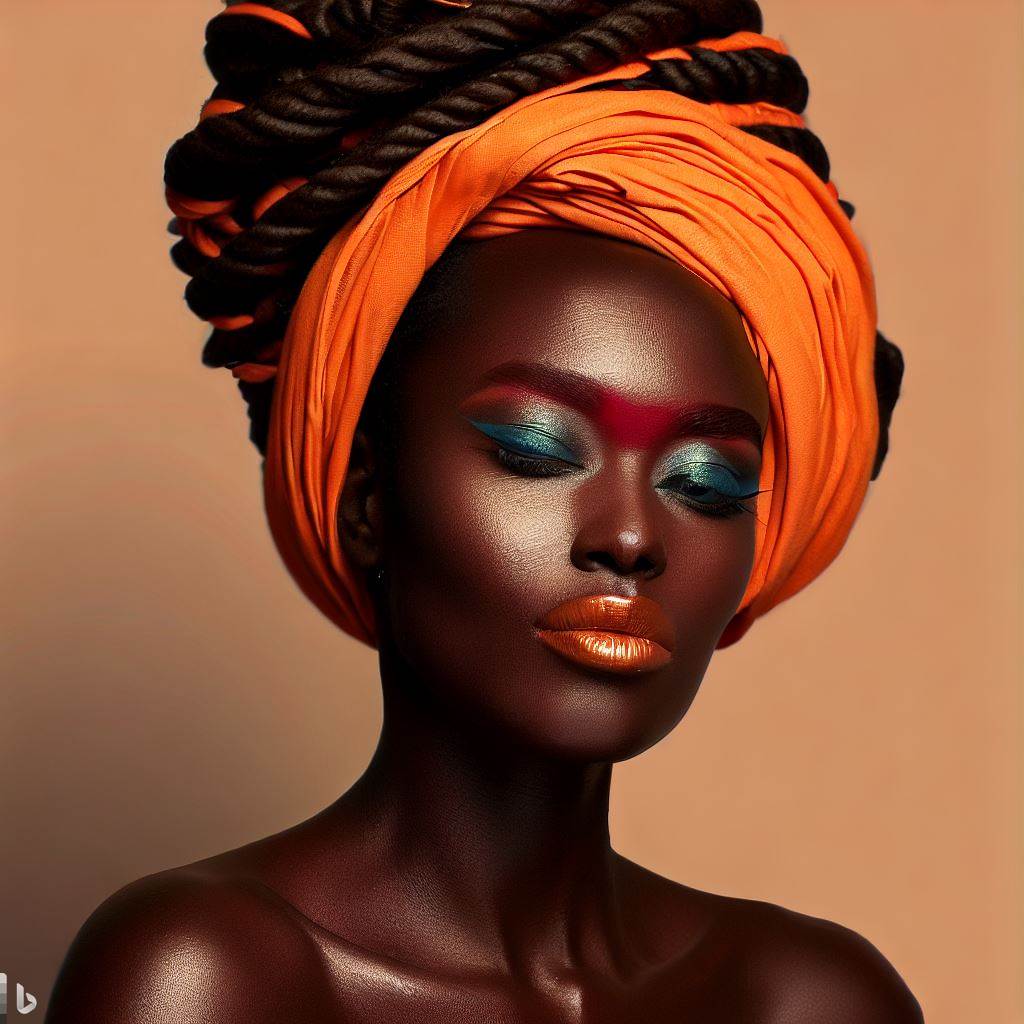
Uncover the Details: Building Artist Relationships as a Concert Promoter in Nigeria
Contemporary Nigerian Makeup Artists
In this section, we will showcase the work of successful Nigerian makeup artists who have made a significant impact in the industry.
These artists not only excel in their craft but also have a unique approach to incorporating cultural influences in their artistry.
Showcasing Nigerian Talent
One of the prominent names in the Nigerian makeup industry is Lola Maja-Okojevoh. Her work has been featured in numerous fashion editorials and she has also worked with top celebrities in Nigeria.
Lola’s makeup style is known for its boldness and ability to bring out the natural beauty of her subjects. Another talented artist is Bimpe Onakoya, who is both a makeup artist and a beauty educator.
Bimpe’s signature style revolves around enhancing the features of her clients while still maintaining their cultural identity.
Omosalewa Akinola, popularly known as Oshewa Beauty, is another Nigerian makeup artist who has gained recognition for her exceptional skills.
Her artistic style is a blend of traditional Nigerian makeup techniques with a modern twist, resulting in stunning and unique looks.
Unique Approaches to Cultural Influences
These makeup artists are known for incorporating cultural influences into their work in innovative ways.
They draw inspiration from Nigeria’s diverse ethnic groups, traditional ceremonies, and iconic cultural elements.
For instance, Lola Maja-Okojevoh often incorporates the use of vibrant African prints, known as ankara, in her work.
She creates beautiful head wraps and accessories that complement her makeup looks, showcasing the rich Nigerian heritage.
Similarly, Bimpe Onakoya believes in celebrating cultural diversity and often uses traditional beads and jewelry in her makeup looks.
She believes that these elements add depth and authenticity to her artistry while allowing her clients to embrace their cultural identity.
Oshewa Beauty, on the other hand, takes inspiration from Nigerian folklore and mythology.
She uses intricate face paints and designs to recreate traditional characters and tell captivating stories through her makeup artistry.
An Exclusive Interview with a Renowned Nigerian Makeup Artist
To gain further insight into the influence of Nigerian culture on makeup artistry, we had the opportunity to interview Zainab Azeez, a renowned Nigerian makeup artist.
Zainab has gained international recognition for her ability to blend traditional Nigerian makeup techniques with contemporary trends.
During the interview, Zainab shared her experiences of growing up in Nigeria and how her cultural background has influenced her artistry.
She emphasized the importance of understanding the traditional beauty rituals and heritage of different ethnic groups in Nigeria to create authentic makeup looks.
Zainab also spoke about the challenges she faced in the industry and how she overcame them by staying true to her cultural roots.
She believes that embracing cultural influences and incorporating them into her work has been the key to her success.
Contemporary Nigerian makeup artists play a vital role in preserving and showcasing the rich cultural heritage of Nigeria through their artistry.
These talented individuals not only excel in their craft but also celebrate the diversity of their country by incorporating cultural influences in innovative ways.
Lola Maja-Okojevoh utilizes ankara prints. Bimpe Onakoya blends beads and jewelry. Oshewa Beauty narrates tales with makeup, all celebrating Nigerian heritage.
Through an exclusive interview with Zainab Azeez, we gained a first-hand perspective on how cultural background greatly impacts and enhances the work of Nigerian makeup artists.
Their dedication to embracing their heritage sets them apart and contributes to the uniqueness and vibrancy of Nigerian makeup artistry.
Read: Tips for Aspiring PR Specialists in Nigeria
Challenges and Opportunities
Challenges faced by makeup artists in Nigeria when it comes to incorporating cultural influences
Makeup artists in Nigeria face several challenges when it comes to incorporating cultural influences into their artistry. These challenges include:
- Limited availability of culturally-inspired makeup products and tools.
- Difficulty in finding suitable models who embrace their cultural identity.
- Resistance from clients who prefer more Westernized makeup looks.
- The pressure to conform to societal beauty standards and trends.
- Limited access to quality training and education in cultural makeup techniques.
The need for more representation and diversity in the beauty industry
However, despite these challenges, there is a need for more representation and diversity in the beauty industry.
Makeup artists play a crucial role in promoting cultural pride and appreciation through their work.
By incorporating cultural influences into their artistry, they can challenge beauty norms and redefine standards of beauty. This can lead to greater acceptance and celebration of diverse cultural identities.
Opportunities for Nigerian makeup artists to showcase their talent and culture globally
One of the opportunities for Nigerian makeup artists lies in showcasing their talent and culture globally. The global beauty industry is increasingly recognizing the importance of cultural diversity and inclusivity.
There is a growing demand for unique and authentic cultural makeup looks, which Nigerian makeup artists can fulfill.
Social media platforms and online beauty communities also provide a platform for Nigerian artists to gain international recognition and connect with a wider audience.
Another opportunity for Nigerian makeup artists is the rise of cultural events and festivals. These events provide a platform to showcase their skills and creativity in a culturally vibrant environment.
Nigerian artists can collaborate with fashion designers, hairstylists, and other artists to create looks that truly reflect the richness of their culture.
These collaborations can lead to new opportunities for exposure and further establish Nigerian makeup artists as influential figures in the industry.
Moreover, the increasing popularity of Nigerian music, movies, and fashion internationally presents an avenue for makeup artists to promote their work.
By collaborating with Nigerian celebrities and influencers, makeup artists can create looks that embody the essence of Nigerian culture and capture the attention of a global audience.
Publish Your Professional Profile, Business or Brand
Showcase your expertise, gain trust, and boost visibility instantly on Professions.ng.
Publish NowThis not only raises the profile of Nigerian makeup artists but also contributes to the overall recognition and appreciation of Nigerian culture.
In a nutshell, Nigerian makeup artists face challenges in incorporating cultural influences into their artistry.
However, there are opportunities for them to overcome these challenges and showcase their talent and culture globally.
By embracing their cultural identity and promoting diversity in the beauty industry, Nigerian makeup artists can leave a lasting impact on the global makeup artistry landscape.
Conclusion
This blog post has highlighted the cultural influence on makeup artistry in Nigeria.
We explored how traditional practices and beliefs shape the way Nigerian makeup artists approach their craft, from using natural ingredients to incorporating cultural symbolism in their designs.
The importance of cultural influence in makeup artistry in Nigeria cannot be overstated.
It not only preserves and celebrates the rich cultural heritage of the country but also gives Nigerian makeup artists a unique identity in the global beauty industry.
As we conclude, let us ponder on the question: How can we further promote and appreciate the cultural influence in makeup artistry not just in Nigeria, but around the world?
Let us continue to explore and embrace the beauty of diversity in makeup and honor the traditions that inspire it.

